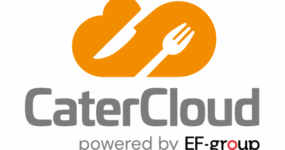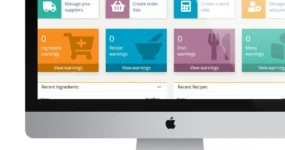
Food service and hospitality operators have (by and large) engaged fully with allergens, intolerances and coeliac disease and have made huge strides in ensuring their systems and procedures meet with both the regulations and with good customer service.
In many circumstances these caterers may be situated within client premises such as schools, hospitals, other public sector, and private organisations including staff feeding who employ third party caterers.
The journey for the food hypersensitive customer can begin outside of the restaurant, whether they are in their place of care, learning or work. So, whilst the catering department is exercising good quality controls including special diets, the host organisation, who has a duty of care for their patrons and customers, may or may not have their own robust systems in place.
An example could be a school whereby the caterers are expected to manage special diet requests, and ensure hypersensitive pupils are fed correctly. Yet the same establishments may not have systems in place when it comes to the beginning of the day and throughout the day with various activities that may include food.
These establishments may be involved in a vast array of activities, for example, celebrations, cookery classes, trips away and even simple activities where gifts of food snacks or treats are distributed as part of a festival or event in a classroom.
Food hypersensitive people can have varying degrees of sensitivity. With some people needing to carry EpiPens or other medication to ensure that if they are exposed to a particular allergy, they have something in place for rapid treatment.
Therefore, the journey of good allergen management should always involve key personnel across the organisation, not just those responsible for lunch and communication is crucial, especially in a school environment.
It starts with identifying the pupil who is food hypersensitive then a series of activities and processes need to be put in place:
- Lunch menu specially adapted following open discussion and even medical records.
- Medication needs, administering in an emergency and the communication channels.
- Staff and teacher awareness
- Protocols for the dining room, classroom activities, trips, and events.
- Peer engagement- where classmates are introduced to a food hypersensitive persons’ circumstance and made aware not to share for example.
It certainly is not just about schools. Hospitals, where ward catering is being delivered, must ensure correct communications between ward staff and the kitchen. In universities this cohort of customers may well be away from home, and the direct care of their parents or guardians, for the first time and this requires many departments in the university, not least catering, to come together to ensure any food hypersensitive students have easy access to staff to talk about their needs and appropriate messaging about the foods and beverages available and the importance of asking staff about allergenic ingredients.
A greater number of employers seek out a new team members personal eating habits and lifestyles to ensure their workplaces meet their needs and this can include discussions on food hypersensitivities. Certainly, many staff restaurants across London where caterers have attained Allergen Accreditation will explain that their accredited coffee bars, dining facilities and hospitality does cater for those with special dietary needs and clients feel this is part of good modern recruitment and staff retention practices.
Training plays a key part here and should include personnel who are not necessarily based in the kitchens. For food handlers and those actively working with food – professional training is necessary. For those staff involved in the wellbeing and welfare of staff and customers emergency first aid and even autoinjector training is highly recommended and fits appropriately as part of the holistic approach to professionally run organisations.
Julian Edwards, CEO, Allergen Accreditation


